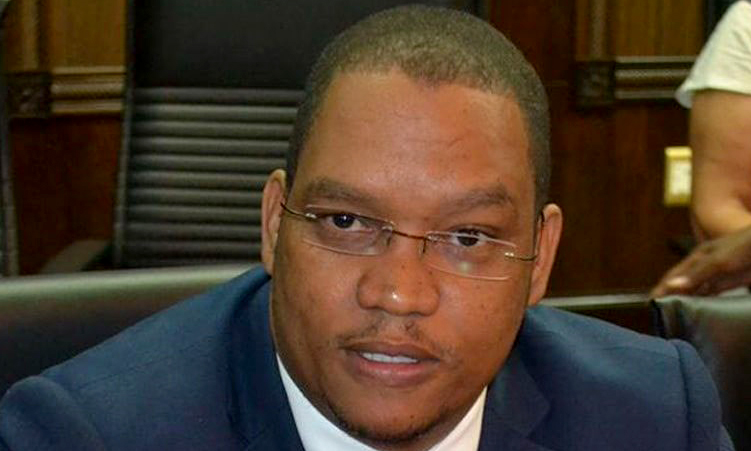Members of parliament (MPs) have raised concerns about a proposed law that would empower the police chief to share personal information with foreign law-enforcement agencies.
The objections were voiced in parliament this week when lawmakers debated amendments tabled by deputy minister of home affairs, immigration, safety and security Daniel Kashikola last week.
Part of the proposed changes to the Police Act of 1990 includes tweaking Section 14 of the act, which deals with the powers of the police inspector general.
It reads: “The inspector general or a member authorised by the inspector general, may share information obtained during an investigation of money laundering and its associated predicate offence, the financing of terrorism or proliferation activity or any other offence of interest, with a foreign law-enforcement agency, on such terms as the inspector general may deem appropriate.”
However, these proposed legal changes were not accepted by members of parliament during the bill’s debate on Monday, with concerns that the new section attempted to give the inspector general unfettered power. Landless People’s Movement leader Bernadus Swartbooi described the plan as akin to giving administrative officials a blank cheque, which could also lead to them making secondary laws.
“Because what we are saying is that the inspector general will have every authority to decide and dictate who, how, when, and under what circumstances he or she will cooperate with any other institutions to share information,” he said.
The opposition lawmaker said the bill must be referred back to insert conditions under which the inspector general can and should share information about police investigations.
Swartbooi said the parliament would neglect its duties by passing the bill in its current format, saying it could lead to the abuse of power.
“If an inspector general is in cahoots with one or other country that may not necessarily be a friend of ours, and gets a sufficient reward, he or she may share sensitive information right up to the president without regard for national security,” he said. Popular Democratic Movement MP Inna Hengari said changes to Section 14 would ensure “that we don’t have too much power over the inspector general, and that there are some sort of control mechanisms”.
Swapo lawmaker Jerry Ekandjo questioned the need for the new provision, claiming that the police would generally share such information through Interpol.
“Normally, the police share information through Interpol. It is a platform where we share information,” he said, while asking whether certain information would now be shared with non-Interpol members. Deputy minister of works and transport Veikko Nekundi questioned whether the lawmakers understood the implications of the amendments, especially with regards to power politics.
“We know very well that some countries which are superpowers of this world have the right to decide what to share with you or not. And we know this information very well,” he said.
Nekundi said it is appropriate to insert a clause that says the inspector general may only share information with a state with which Namibia has a mutual agreement.
Minister of justice Yvonne Dausab said she agreed with the concerns raised by lawmakers. “I think we are amenable to making maybe one or two slight adjustments to the amendment to satisfy concerns about whether or not there is a process we need to put in place to satisfy that the decision the inspector general takes is not arbitrary,” she said.
“And that there is some process that can check whether it’s for the minister to make sure that happens. I think we must look at that amendment,” she said.
This was also supported by Kashikola.
He said the police amendment bill is meant to comply with Chapter 7 of the United Nations Charter, which deals with threats to peace and acts of aggression.
Stay informed with The Namibian – your source for credible journalism. Get in-depth reporting and opinions for
only N$85 a month. Invest in journalism, invest in democracy –
Subscribe Now!






